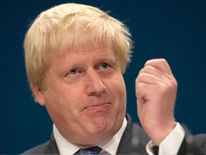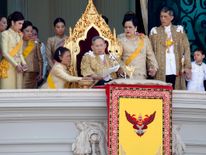"Hard Brexit" is the only offer on the table, European Council president Donald Tusk has warned, unless the UK changes its mind and decides to stay in the EU.
In a strongly-worded intervention, Mr Tusk insisted the UK would not be able to retain the benefits of European Union membership whilst also blocking free movement of people and ending contributions to the Brussels budget.
Mr Tusk said it was "useless to speculate about soft Brexit", which would enable the UK to retain the closest possible ties to the bloc after leaving.
He also told the European Policy Centre that the Leave campaign's demand to "take back control" would ultimately be "painful for Britons".
He said: "This approach has definitive consequences, both for the position of the UK Government and for the whole process of negotiations.
"Regardless of magic spells, this means a de facto will to radically loosen relations with the EU, something that goes by the name of 'hard Brexit'."
He dismissed Foreign Secretary Boris Johnson's "cake" comments during the referendum about being "pro-having it and pro-eating it".
Mr Tusk said: "The words uttered by one of the leading campaigners for Brexit and proponents of the cake philosophy was pure illusion that one can have the EU cake and eat it, too.
"To all who believe in it, I propose a simple experiment: Buy a cake, eat it, and see if it is still there on the plate."
However, the council president added that the UK Government "would find allies" if it wanted to reverse the Brexit decision after article 50 had been triggered.
"In my opinion, the only real alternative to a 'hard Brexit' is 'no Brexit'," said Mr Tusk.
"Of course it is and can only be for the UK to assess the outcome of the negotiations and determine if Brexit is really in their interest."
His comments came as Mr Johnson suggested Britain can get a trade deal that is "of greater value" to the UK economy than access to the EU single market, which he described as "increasingly useless".
Giving evidence to the House of Commons Foreign Affairs Committee, Mr Johnson said: "It doesn't mean that we are going to be hostile to people of talent who want to live and work here.
"I think it is extremely important that we continue to send out a signal of openness and welcome to the many brilliant people who help to drive the London economy and the UK economy."
Mr Johnson conceded that negotiations could take longer than the two years set under Article 50, but he insisted he was "absolutely confident" that a good deal would eventually be reached.
Critics have warned that loss of access to the single market would harm British businesses by denying them a marketplace of 500 million consumers free of tariffs.






